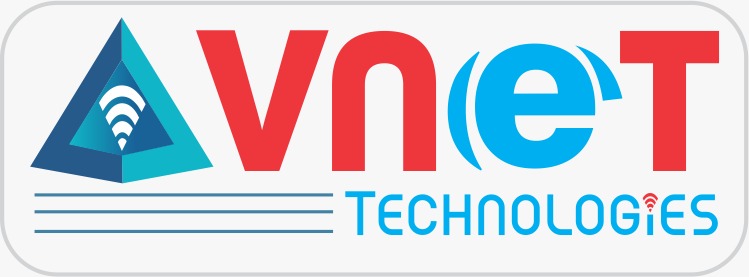
Artificial Intelligence (AI) and data science are transforming industries worldwide, enabling businesses to make data-driven decisions, improve efficiency, and enhance customer experiences. From personalized recommendations to fraud detection, AI applications are reshaping the way organizations operate. Here are some of the most impactful real-world applications of AI in business.
- Personalized Recommendations in E-Commerce
E-commerce giants like Amazon and eBay leverage AI-driven recommendation systems to enhance customer experiences. These systems analyze user behavior, purchase history, and preferences to suggest relevant products, boosting sales and customer satisfaction.
Key Techniques:
- Collaborative Filtering
- Content-Based Filtering
- Hybrid Recommendation Models
Tools Used: Python, Scikit-learn, TensorFlow, Surprise
- AI-Powered Chatbots for Customer Support
Businesses use AI chatbots to provide instant customer support, reducing response times and operational costs. Chatbots powered by Natural Language Processing (NLP) can handle FAQs, process transactions, and escalate complex issues to human agents.
Key Techniques:
- NLP and Sentiment Analysis
- Pre-trained Transformer Models (BERT, GPT)
- Intent Recognition
Tools Used: Rasa, Dialogflow, TensorFlow, OpenAI GPT
- Fraud Detection in Financial Services
Banks and financial institutions use AI to detect fraudulent activities in real-time. Machine learning models analyze transaction patterns, flagging anomalies that indicate potential fraud.
Key Techniques:
- Anomaly Detection
- Supervised Learning for Classification
- Unsupervised Learning (Autoencoders, Isolation Forest)
Tools Used: Scikit-learn, XGBoost, TensorFlow
- Predictive Maintenance in Manufacturing
Manufacturers use AI-driven predictive maintenance to reduce downtime and improve equipment efficiency. AI models analyze sensor data to predict potential failures before they occur.
Key Techniques:
- Time Series Forecasting
- IoT Data Processing
- Machine Learning Regression Models
Tools Used: Statsmodels, Facebook Prophet, TensorFlow
- AI in Healthcare: Medical Diagnosis and Imaging
AI is revolutionizing healthcare by assisting in medical diagnosis, drug discovery, and patient care. AI models analyze medical images (X-rays, MRIs) to detect diseases like cancer at early stages.
Key Techniques:
- Convolutional Neural Networks (CNNs) for Image Processing
- Deep Learning for Pattern Recognition
- Predictive Analytics for Disease Forecasting
Tools Used: TensorFlow, Keras, OpenCV, PyTorch
- Autonomous Vehicles and AI-Driven Transportation
AI powers self-driving cars by processing sensor data from cameras, LiDAR, and radar. Companies like Tesla and Waymo use AI for real-time object detection, lane detection, and decision-making.
Key Techniques:
- Computer Vision (CNNs, Object Detection Models)
- Reinforcement Learning for Autonomous Driving
- Sensor Fusion for Navigation
Tools Used: OpenCV, TensorFlow, PyTorch
- AI in Marketing: Customer Segmentation and Ad Targeting
Businesses use AI to analyze customer data and optimize marketing campaigns. AI models segment customers based on behavior, interests, and demographics, helping brands target the right audience.
Key Techniques:
- Clustering (K-Means, DBSCAN)
- Predictive Analytics for Campaign Performance
- NLP for Social Media Analysis
Tools Used: Scikit-learn, NLTK, Tableau, Google Analytics
- AI for Supply Chain Optimization
AI enhances supply chain management by predicting demand, optimizing logistics, and reducing costs. Businesses use AI to forecast inventory needs and streamline operations.
Key Techniques:
- Demand Forecasting with Time Series Analysis
- Route Optimization using Reinforcement Learning
- Inventory Management with Predictive Models
Tools Used: Python, Statsmodels, TensorFlow, OR-Tools
- AI in Cybersecurity: Threat Detection and Risk Mitigation
AI strengthens cybersecurity by detecting threats and preventing cyberattacks. AI-powered intrusion detection systems analyze network behavior to identify malicious activities.
Key Techniques:
- Anomaly Detection using Machine Learning
- Deep Learning for Intrusion Detection
- AI-driven Phishing Detection
Tools Used: TensorFlow, PyTorch, Scikit-learn, Snort
- AI for Business Process Automation
AI streamlines repetitive tasks in business processes, reducing human workload and increasing efficiency. Robotic Process Automation (RPA) is used in finance, HR, and customer service to automate workflows.
Key Techniques:
- NLP for Document Processing
- Machine Learning for Task Automation
- AI Chatbots for Workflow Management
Tools Used: UiPath, Automation Anywhere, TensorFlow, IBM Watson
Conclusion
AI is revolutionizing industries by enabling data-driven decision-making, optimizing operations, and enhancing customer experiences. From e-commerce to healthcare and cybersecurity, businesses continue to leverage AI’s capabilities to gain a competitive edge. As AI evolves, its applications will expand, further transforming the way industries operate. If you’re looking to integrate AI into your business, understanding these applications is the first step toward harnessing its potential.
